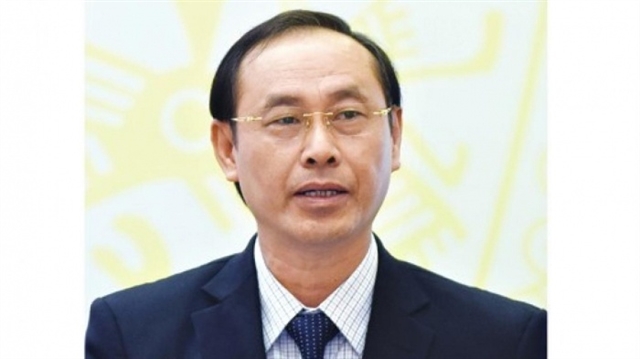.jfif) Opinion
Opinion

Deputy Minister of Transport Lê Đình Thọ talks to Giao Thông (Transport) newspaper about electronic toll collection (ETC) at build-operate-transfer (BOT) tollbooths

|
| Deputy Minister of Transport Lê Đình Thọ. — Photo baogiaothong.vn |
Deputy Minister of Transport Lê Đình Thọ talks to Giao Thông (Transport) newspaper about electronic toll collection (ETC) at build-operate-transfer (BOT) tollbooths
How is ETC being implemented and what are the results?
Currently, the ETC project has basically overcome difficulties to complete on schedule under the direction of Prime Minister Nguyễn Xuân Phúc. This result is due to the great efforts of the Ministry of Transport (MoT), BOT investors and ETC service providers.
The ETC project is an independent project but is added to BOT projects, so it is necessary to complete many procedures to ensure compliance with regulations. Also because this is an additional project not in the original financial plan of the BOT investors, it must be recalculated accordingly.
Second, ETC is a new issue. Technical difficulties, the responsibility of the BOT investor and of the ETC service provider are not yet fully anticipated. Besides, there are also difficulties related to the capital of banks to finance the project and the payment problems of vehicle owners when using ETC service.
However, up to now, the above difficulties have been basically solved in a comprehensive and synchronous manner.
A major difficulty of the project is the negotiation of ETC service contracts between the MoT and the BOT investor and between the BOT investor and the ETC service provider. How has the MoT solved this problem?
First of all as I said, this is a new model. Before, we are mainly using human resources. Up to now, we have used automatic technology to replace humans. Therefore, when implementing the project, there are still many unclear issues about the legal corridor and arising problems. It is necessary to co-ordinate many actors such as State agencies, ETC service providers, BOT investors, banks and road vehicle owners.
If each object in this line is responsible, the project will be favourable. On the contrary, the project will encounter many difficulties and problems. For example, for the BOT investor, because the ETC project is an additional item while the BOT investor has completed the investment.
The ETC item is added to the project while the BOT project's financial plan has been completed and the financing bank's agreement has not included an agreement on the credit extension plan for investors to collect fees electronically. Therefore, they need to be flexible: the BOT investor needs to make efforts and the bank approves to lend additional money for the investor to continue implementation.
As for ETC service providers, if their financial options are viable, the bank will facilitate investment lending. However, when preparing a financial plan, some BOT investors do not meet it, affecting the financial plan of the service provider. Therefore, banks must reconsider credit granting to the ETC service provider.
In addition, there are many cases in which BOT investors have used project assets as collaterals to banks. While revenues from some stations are not enough to repay loans, banks will be reluctant to continue lending for non-stop collection investment. Each stage causes a little problem resulting in cumulative obstacles to the overall progress of the project.
From that reality, the MoT and investors, service providers together with the banks researched and adjusted the legal corridor for the project. The MoT proposes to the Government to allow the amendment of Decision 07, solving the shortcomings as well as offering solutions to implement the project. Therefore, after Decision 19 was issued last year, the MoT together with other units removed difficulties and now, the implementation progress has been guaranteed.
During the recent Government meeting on solving problems in BOT projects, PM Phúc asked the MoT to not allow BOT investors who do not implement ETC to continue collecting fees. How is this being done?
The PM asked that from December 31, investors who do not install the ETC system will not be allowed to collect fees. This is a strong policy and solution to require investors to implement ETC and there is sufficient legal basis to do this. Even stations with ETC installed but cars without a card that intentionally enter the toll lane will face a penalty.
When the ETC system is connected between the investor and the service provider, the cash flow will be controlled. In addition, there is a connection between banks to transfer cash flows to allocate repayments to investors. People using ETC payment cards will, for the time being, use a prepaid traffic account.
To continue to handle problems and ensure publicity, transparency, and convenience for people, the method of connection between banks will use e-wallets. Besides, there will be inter-connection between the two ETC service providers. — VNS




